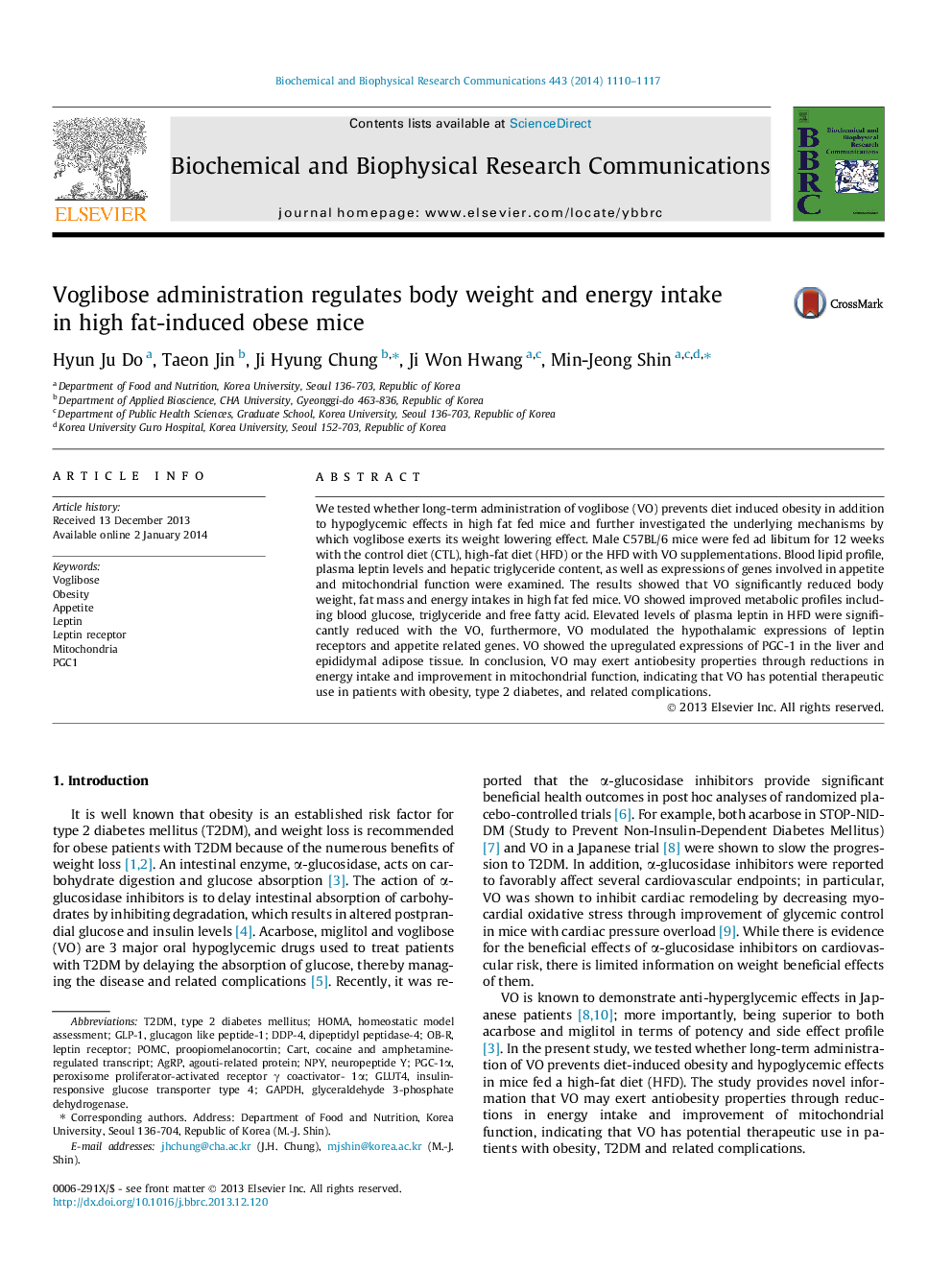| Article ID | Journal | Published Year | Pages | File Type |
|---|---|---|---|---|
| 10757168 | Biochemical and Biophysical Research Communications | 2014 | 8 Pages |
Abstract
We tested whether long-term administration of voglibose (VO) prevents diet induced obesity in addition to hypoglycemic effects in high fat fed mice and further investigated the underlying mechanisms by which voglibose exerts its weight lowering effect. Male C57BL/6 mice were fed ad libitum for 12Â weeks with the control diet (CTL), high-fat diet (HFD) or the HFD with VO supplementations. Blood lipid profile, plasma leptin levels and hepatic triglyceride content, as well as expressions of genes involved in appetite and mitochondrial function were examined. The results showed that VO significantly reduced body weight, fat mass and energy intakes in high fat fed mice. VO showed improved metabolic profiles including blood glucose, triglyceride and free fatty acid. Elevated levels of plasma leptin in HFD were significantly reduced with the VO, furthermore, VO modulated the hypothalamic expressions of leptin receptors and appetite related genes. VO showed the upregulated expressions of PGC-1 in the liver and epididymal adipose tissue. In conclusion, VO may exert antiobesity properties through reductions in energy intake and improvement in mitochondrial function, indicating that VO has potential therapeutic use in patients with obesity, type 2 diabetes, and related complications.
Keywords
PGC-1αPGC1Ob-RT2DMGLUT4CARTGLP-1POMCAgRPGAPDHNPYHomeostatic model assessmentAppetiteType 2 diabetes mellitusDipeptidyl peptidase-4LeptinObesityMitochondriaHOMAVogliboseAgouti-related proteinproopiomelanocortinCocaine and amphetamine-regulated transcriptglucagon like peptide-1glyceraldehyde 3-phosphate dehydrogenaseLeptin receptorNeuropeptide Y
Related Topics
Life Sciences
Biochemistry, Genetics and Molecular Biology
Biochemistry
Authors
Hyun Ju Do, Taeon Jin, Ji Hyung Chung, Ji Won Hwang, Min-Jeong Shin,
